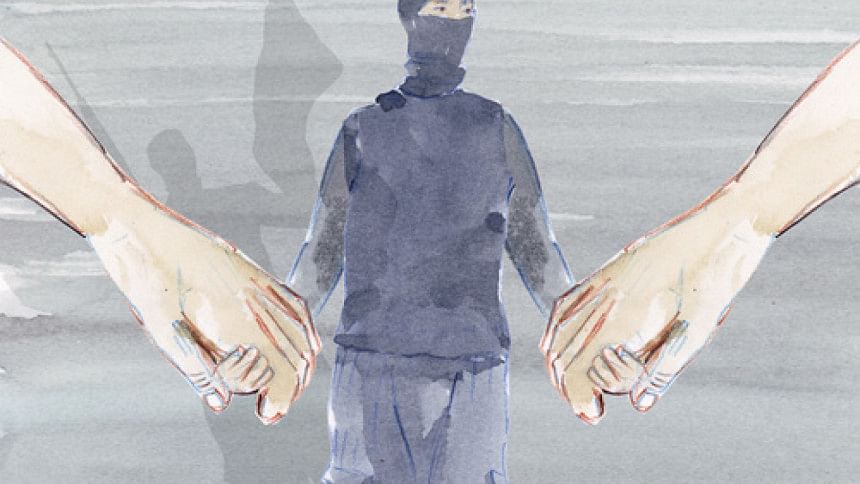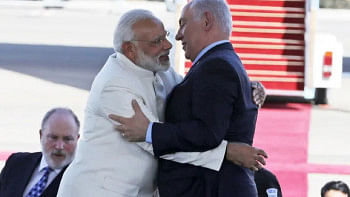Life must go on

More than three weeks have elapsed since the carnage at the Holey Café and Bakery in Dhaka. Despite assurances by the government to combat terror and assertions by the police about strengthening surveillance, the city remains in a state of deep shock and partial paralysis. People are grappling with the uncertainty of what's to come next. The crucial question seems to be: Will our lives be eclipsed by the dread of terror or can we overcome the setback, through the collective actions and resilience of our brave citizens?
Fighting terrorism is not an easy task given its complex and mutating nature. Terrorists today have splintered and regrouped in unprecedented ways, helped largely by the internet. It is no longer just ISIS, Al Qaeda or even a local Islamist group. We are now dealing with lone wolves inspired by an extremist ideology, but in many cases without a direct operational connection to the base. They are youths from within our community who have been radicalised by some cleric preaching a distorted version of Islam on TV or the internet calls for Jihad. Profiling these individuals is difficult since they may not be Madrassa students/graduates or regular visitors to the mosque. These impressionable youngsters have been sucked into a cult that has given them false hopes of a better world on the other side, tapping into some deep insecurity or frustration that they nurture within them. Hence, this is more of a social and community problem rather than one that can be solved with hardline counter terrorism strategies alone.
The terrorists have also changed their modus operandi – they are not just bombing airports, mosques and churches or hacking liberals who raise their voices against radical Islam. The new strategy seems to be to maximise civilian deaths and generate a high level of chaos and fear among the population! No one so far has clearly defined the objective of the killings except that the perpetrators espouse a monolithic belief that they are waging a "religious war".
In the last few months, there have been attacks at locations as far apart as Brussels and Istanbul and Dhaka and Nice. The Dhaka Massacre, however, stands out for its cold-blooded brutality. We have been shaken to the core by the fact that six or seven "normal looking" youngsters could walk into a public place, kill and terrorise innocent, unarmed people and sustain a heightened level of violent anger for 12 hours. As we mourn the victims, numerous questions cross our minds: Are there sleeper cells in the country that could launch further surprise attacks? Will normalcy return or is the future shrouded in uncertainty? Will Bangladesh become a breeding ground for Islamic extremism?
Experience with terrorist attacks elsewhere shows that life does return to a routine pace. This is bound to happen in Dhaka, but our citizenry will continue to live with a lurking fear. And, it will take a long time for people to move around as freely as they did prior to the tragedy. There are no easy and quick fixes to the enormous problem we face. But, the government and civil society need to work in tandem to restore the confidence that has been shattered. The law enforcement agencies must step up surveillance and intelligence, but without overreaching their writ. Yes, there should be zero tolerance for any individual or group fanning intolerance and sectarian violence, but we also need to be conscious of the fact that our civil liberties are not trampled upon.
It is important that parents become more proactive in guiding and monitoring their children. The family and community must work together to wean radicalised young people back through cultural and sports initiatives that are known to have a salutary impact on the youth. Some countries have introduced rehabilitation programmes for those who either return from a spell with ISIS or are veering toward radicalisation. It may be worthwhile to explore these models and re-design them in line with our cultural and social context.
The journey toward healing and recovery is going to be a long and arduous one. The recent tragedy has demonstrated that terrorism is a negative sum game…there are no winners in this fight. The unfortunate victims and their families suffer the most but then the terrorists themselves are also fighting a losing battle. They may temporarily succeed in instilling fear among ordinary citizens, but they are not likely to win the battle of ideas and the mind. On the contrary, they are losing public support and their families, mostly innocent, are ostracised and humiliated. In effect, it's a battle where all sides lose out. Sadly, the greatest losers are the ordinary people who want to live normal lives and aspire for a better world for their children. But, as Robert Frost said: "In three words I can sum up everything I have learned about life: It goes on". And it must!
The writer is a renowned Rabindra Sangeet exponent and a former employee of the World Bank.
E-mail:[email protected]

 For all latest news, follow The Daily Star's Google News channel.
For all latest news, follow The Daily Star's Google News channel. 



Comments